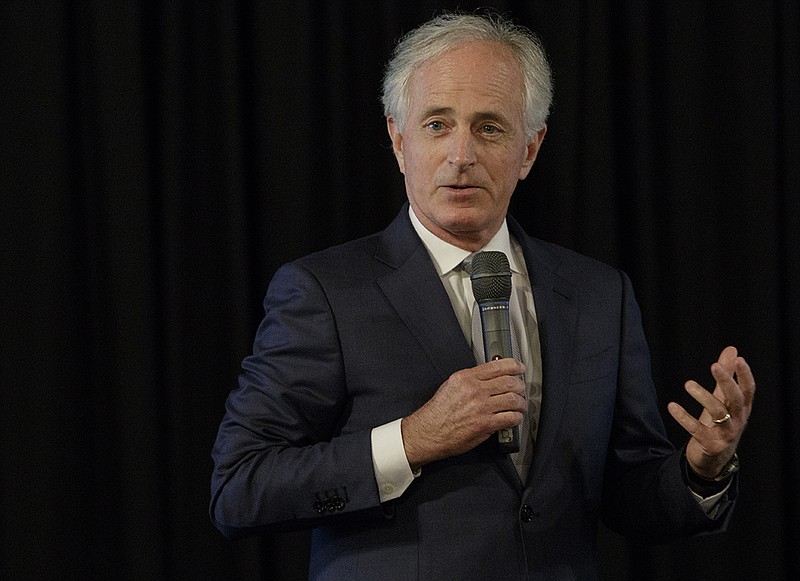Senate Foreign Relations Chairman Bob Corker, R-Tenn., today said the early evidence suggests that Washington Post columnist Jamal Khashoggi was murdered by Saudi Arabia, which, if true, will "dramatically change" U.S. relations with one of the key allies of the U.S. in the Middle East.
Corker told reporters in Chattanooga that he is still waiting for all of the evidence about the disappearance of Khashoggi, who was a critic of some of the policies of the Saudi Crown Prince.
"Everything points to Saudi Arabia and everything points to the fact that he has been murdered," Corker said. "Hopefully, he will show up someplace and all of this won't be true. But it feels like he has been murdered."
The Washington Post reported today that the Turkish government has told U.S. officials that it has audio and video recordings that prove Khashoggi was killed inside the Saudi Consulate in Istanbul this month, according to U.S. and Turkish officials.
Corker said he talked with the Saudi ambassador in Washington D.C., who showed Corker a livestream video that did not record, "which was not a believable answer."
On Wednesday, Corker and the ranking Democrat on the Senate Foreign Relations Committee, Bob Menendez, D-N.J., took the dramatic step of triggering a Magnitsky Act investigation into Khashoggi's disappearance. By law, the Trump administration would then have 120 days to decide whether to impose those sanctions.
"Our relations (with Saudi Arabia) are probably the lowest they have ever been in Congress since I have been there," Corker said. "A lot of that has to do with (Saudi attacks on) Yemen and a lot of that just has to do with the way they are approaching Congress."
During a bill signing Thursday in the Oval Office, President Trump called Khashoggi's suspected killing "a terrible thing," but stopped short of assigning blame.
"We're looking at it very strongly," Trump said. "We'll be having a report out soon. We're working with Turkey, we're working with Saudi Arabia. What happened is a terrible thing, assuming that happened. I mean, maybe we'll be pleasantly surprised, but somehow I tend to doubt it."
But Trump appears relunctant to want to impose any limit on arms sales to Saudi Arabia, which welcomed him in the spring of 2017 with a lavish parade and ceremony during one of his first major foreign trips as president.
"They're spending $110 billion purchasing military equipment and other things," Trump said of the Saudis. "If we don't sell it to them, they'll say, 'Well, thank you very much. We'll buy it from Russia.' Or 'Thank you very much. We'll buy it from China.' That doesn't help us - not when it comes to jobs and not when it comes to our companies losing out on that work."
Corker said President Trump is right to be cautious in investigating the incident and he stressed that, despite the president's comments on Thursday, there are no pending arms sales to Saudi Arabia that would immediately be impacted by any sanctions, if such are imposed.
"The administration is dealing with them (Saudi Arabia) closely on the Middle East peace plan," Corker said "Obviously, Saudi Arabia would be one that matters in all of that. But if this has happened, our relationship with them will change dramatically."
